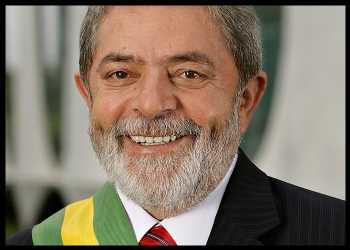Lula Da Silva Makes A Stunning Comeback To Brazil Presidency

Former president Luiz Inacio Lula da Silva made a stunning comeback in Brazil’s politics by winning the presidential election.
He defeated far-right incumbent President Jair Bolsonaro in the second round by winning 50.9 percent of the votes.
The election headed to a run off after both the candidates failed to win a clear majority in the first round held earlier this month.
The Opposition candidate’s win marks the return of the left into power in Latin America’s largest country after nearly four years under the rule of far-right leader Bolsonaro.
Bolsonaro was elected President in January 2019 as the candidate of the conservative Social Liberal Party, and joined the Liberal Party in November 2021.
Lula, who was President for two consecutive terms during 2003-2010, was jailed for 580 days over a series of corruption scandals.
The Supreme Court annulled the charges against him in 2021, paving the way for the 76-year-old leader to run again for presidency.
“They tried to bury me alive and I’m here,” he told supporters in a victory speech Sunday evening. He described the win as his political “resurrection.”
Lula Da Silva is assuming office at a time Brazil finds it difficult to recover from the effects of Covid-19. The pandemic worsened the country’s poverty rate.
The country is also facing rampant deforestation in the Amazon. Lula had vowed to take measures to protect the Amazon rain forest if he wins the presidency.
U.S. President Joe Biden congratulated Lula da Silva on his election to be the next president of Brazil. He termed the elections “free, fair, and credible.”
In a message congratulating the incoming President on Twitter, U.K. Prime Minister Rishi Sunak wrote, “I look forward to working together on the issues that matter to the UK and Brazil, from growing the global economy to protecting the planet’s natural resources and promoting democratic values.”
Lula’s win marks the latest in a series of pro-left wave across Latin America, following Argentina, Colombia and Chile.
Source: Read Full Article
